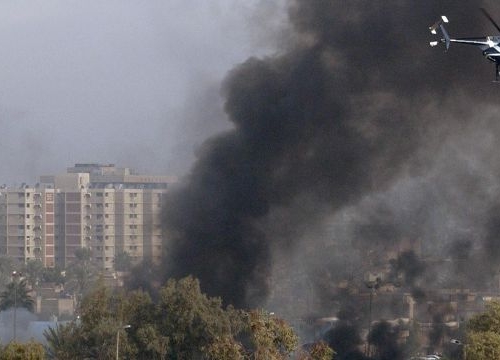Private Military Companies and the Future of Conflict
Event


U.S. Air Force
Private military companies (PMCs) are playing an increasingly high-profile role in many conflict settings around the world. The war in Ukraine and evidence of Russian mercenaries in a growing number of countries, raise serious questions about accountability and remedy. Security companies, military contractors, mercenaries… what distinguishes these different categories of private actors? What role do PMCs play, can they operate responsibly, what are the laws applicable and how can they be held to account?
This panel discussion – co-organized with the International Code of Conduct Association (ICoCA) and part of its Annual General Assembly – will consider the growing importance of PMCs and what role, if any, ICoCA, law and regulation might play in promoting human rights observance and strengthening accountability in what is often considered an opaque and disreputable industry.
Moderator
- Jamie Williamson, Executive Director, ICoCA
Panelists
- Gloria Gaggioli, Director, Geneva Academy and Associate/SNF Professor, University of Geneva
- Alessandro Arduino, Principal Research Fellow, Middle East Institute (MEI), National University of Singapore and Associate, Lau China Institute, King’s College London
- Sorcha MacLeod, Marie Curie Fellow and Associate Professor, University of Copenhagen and Chair, United Nations Working Group on Mercenaries
- Ori Swed, Assistant Professor, Department of Sociology, Anthropology, and Social Work, Texas Tech University








